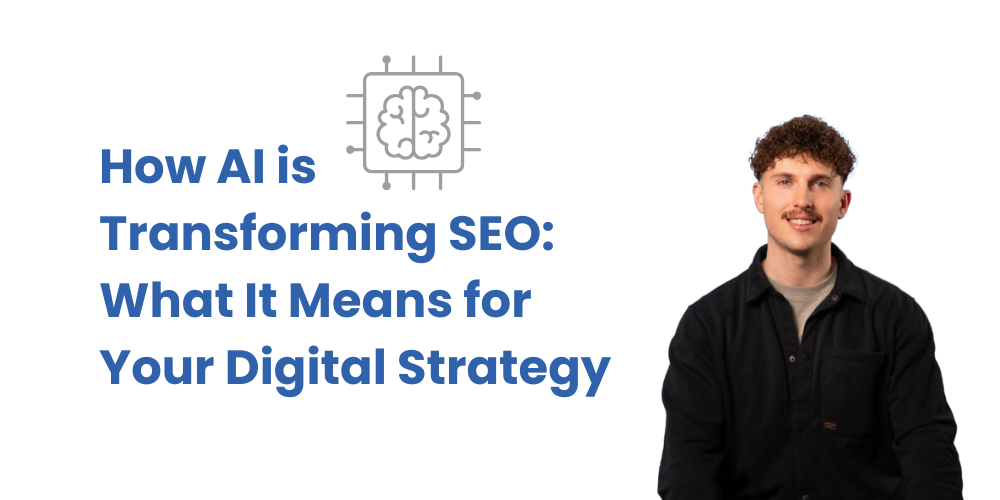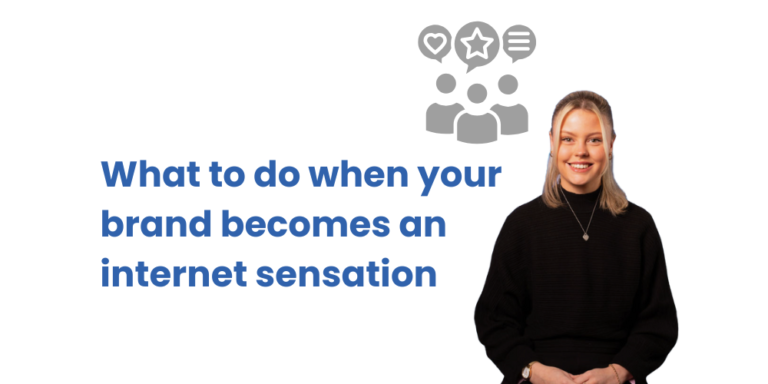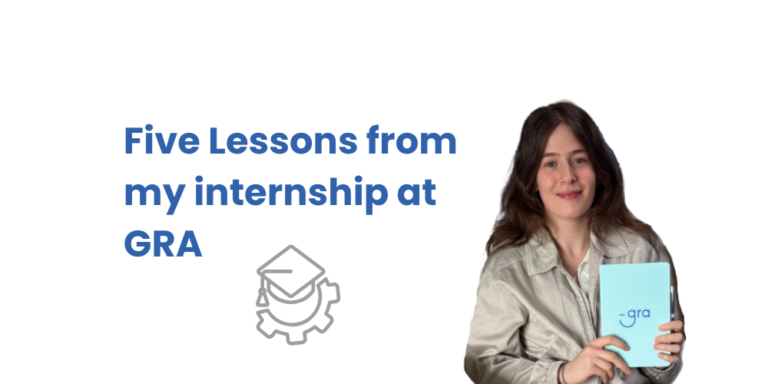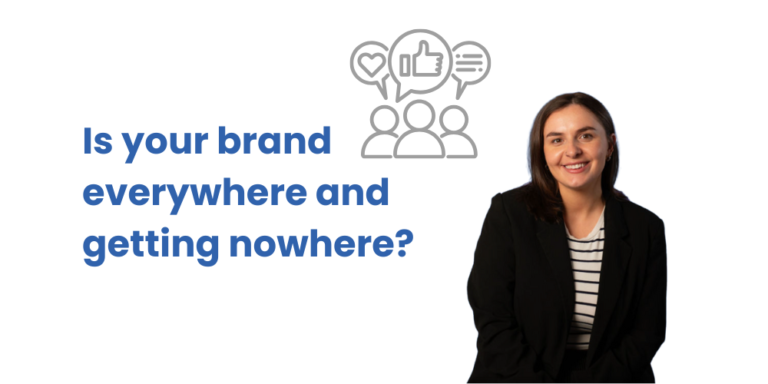Introduction to AI and Its Impact on Search
AI has completely changed how search engines work. Google doesn’t just match keywords to pages anymore. It personalises results based on your location, device, search history, and hundreds of other factors. The results you see are different from what someone else sees, even for the same search.
This goes beyond traditional Google search. AI tools like ChatGPT, Perplexity, and Microsoft Copilot now give conversational answers instead of lists of links. Google has responded with AI Overviews, which show AI-generated summaries at the top of results.
The impact is significant. Publishers have reported click-through rate drops of up to 47.5% on desktop and 37.7% on mobile when AI Overviews appear. Users get their answer from the AI summary and so no longer feel the need to click through to a website. This challenges the entire traditional SEO model.
How SEO Has Changed
Before AI vs Where We Are Now
SEO used to be simple. Find keywords, build backlinks, add those keywords to your content, and watch your rankings climb. Success meant gaming the system through repetition. Google’s algorithm updates have gradually killed this approach, but the real change came with machine learning.
Google’s Hummingbird update in 2013 started looking at context, not just individual keywords. RankBrain in 2015 used machine learning to understand what users actually wanted. BERT in 2018 helped Google understand natural language properly. The latest update, MUM, works across multiple languages and understands complex queries better than ever before.
From Keywords to Intent
The focus has shifted from keywords to user intent. Modern SEO isn’t about keyword density anymore. It’s about creating content that answers real questions people have. The goal isn’t ranking for specific terms but showing expertise across entire topics.
AI now understands how concepts relate to each other, it understands conversational searches, and rewards content that actually helps people. You need to build comprehensive content that shows expertise, experience, authority, and trust. Google calls this E-E-A-T, and it’s now the foundation of good SEO.
How AI Is Being Used in SEO
Keyword Research and Content Creation
AI has changed keyword research. Traditional tools give you lists based on databases, meanwhile AI tools understand intent. AI spots patterns in how people actually search and can tell the difference between someone researching a topic and someone ready to buy making it a lot more sophisticated.
Instead of just suggesting “running shoes,” AI might flag “best trail running shoes for beginners” because it knows that’s what people who are about to purchase actually type in. It generates conversational queries that traditional tools miss completely.
You can use AI to generate extensive keyword lists relevant to what you’re writing about and run those keywords through Ahrefs or SEMrush to check their relevancy and search volume. This cuts down research time and helps you to spot opportunities you’d potentially miss if doing this task manually.
Content Generation
Content generation is where things get messy. AI can write and it can write quickly. But pumping out huge volumes of AI content is unlikely to improve your rankings.
Google doesn’t care if AI wrote your content. It cares if your content is useful, if it meets search intent and if it shows real expertise and authority. AI content needs to hit the same E-E-A-T standards as everything else.
AI works best when used for research and producing outlines and first drafts. The problem is it can’t add the unique insights, personal experience, or brand voice that makes content actually valuable and resonate with real people. You can use AI to speed things up, but you still need humans to add the expertise that earns trust and rankings.
Competitor Analysis
AI has changed how we monitor competitors. Instead of manually tracking rankings and backlinks, tools like SEMrush and Ahrefs can now regularly monitor what competitors are doing.
These platforms use AI to spot patterns in the data. They flag when a competitor gains backlinks that correlate with ranking jumps and alert you when content updates tie to traffic shifts. They also surface keyword gaps and emerging opportunities you’d likely miss if you were doing this manually.
If a competitor suddenly begins ranking for a keyword you’re targeting, the tools can analyse what changed and provide insights to help guide how you respond to this. This means you can pivot your strategy and stay ahead instead of playing catch‑up.
Technical SEO
Technical SEO has always been an essential pillar of a robust SEO strategy but it can sometimes be considered tedious. Site audits, broken link detection, indexation issues, and performance monitoring requires constant attention.
AI is changing this. Tools like Google Search Console help monitor site health and performance, highlighting indexation problems and performance drops. However, AI-powered platforms can go one step further by identifying patterns, suggesting schema markup, and flagging potential issues early.
What used to require quarterly manual audits can now be monitored continuously and acted upon quickly. This means technical problems get caught and fixed before they damage your rankings.
Answer Engine Optimisation
Answer Engine Optimisation is the practice of optimising your content to be cited and featured in AI-generated responses across platforms like ChatGPT, Google AI Overviews, and Perplexity.
Rather than focusing solely on traditional search rankings, it’s about ensuring your content becomes the source that AI systems reference when answering user queries. It’s a shift in focus from ranking high on Google to being the answer AI gives.
What This Means for Search
Google’s Search Generative Experience is a major shift. Instead of lists of links, it combines traditional results with AI-generated answers that give you information immediately. Users get complete answers without leaving Google, which is great for them but challenging for businesses that rely on organic traffic to get eyeballs on their websites.
Studies also show that AI search traffic is growing quickly and often converts better than traditional search visits.
This is happening across all AI platforms: ChatGPT, Microsoft Copilot, and Perplexity all give conversational answers with source citations instead of ranked results. Search is changing from a list of links to a conversation with AI that cites sources. You need to make sure you’re the source being cited, not just another link people scroll past.
Challenges and the Human Element
AI Limitations
Despite its capabilities, AI has real limitations. Hallucinations (when AI generates plausible but wrong information) remain a genuine concern. This creates risks for businesses that rely too heavily on AI content without proper fact checking. Misinformation is the top concern for both marketers and consumers when it comes to AI.
Google has stated that standard SEO best practices work for AI Overviews, with no special optimisations required. News publishers are testing different approaches to appear in AI Overviews whilst still getting clicks, tweaking copy without damaging their main goal of giving readers the information they want.
Why Humans Still Matter
The best AI implementations keep humans involved. AI is great for high-volume, repetitive tasks, but struggles with strategy, creativity, and emotional intelligence. AI wins on scale and speed, but humans win on originality, empathy, and strategic thinking.
Verified knowledge bases have become essential for reducing AI’s mistakes. By giving AI tools access to your verified information, you can cut down on errors whilst maintaining control. The best teams use AI for routine tasks, allowing them to operate more efficiently, whilst keeping human expertise for strategy, creativity, and quality control. AI isn’t replacing expertise, it’s enhancing it. By taking on repetitive, simple, manual tasks, AI is freeing up humans to do what they do best: create, ideate and innovate.
The consequences of using AI unvetted can be serious. In 2023, a lawyer used ChatGPT to research legal precedents and submitted a brief citing six cases that didn’t exist, complete with false names and bogus internal citations. He was fined $5,000. More recently, the Chicago Sun-Times and Philadelphia Inquirer published summer reading lists featuring books that were completely made up by AI, including titles falsely attributed to real authors. These aren’t isolated incidents. They’re reminders that AI can sound confident whilst being completely wrong so it is imperative humans step in and apply knowledge and reasoning and not just copy and paste what it spits out.
Looking Ahead
The future of SEO isn’t about AI replacing traditional practices. It’s about everything converging. Search, social media, and AI platforms are increasingly judged by the same signals: authority, originality, and trust. SEO will keep evolving but it won’t disappear. People will always have questions about products and services.
The winners will be the businesses that adapt quickly, build genuine expertise, and establish authority across multiple platforms. Quality will beat quantity. Businesses that use AI to enhance human creativity, not replace it, will create content that earns rankings and trust.





